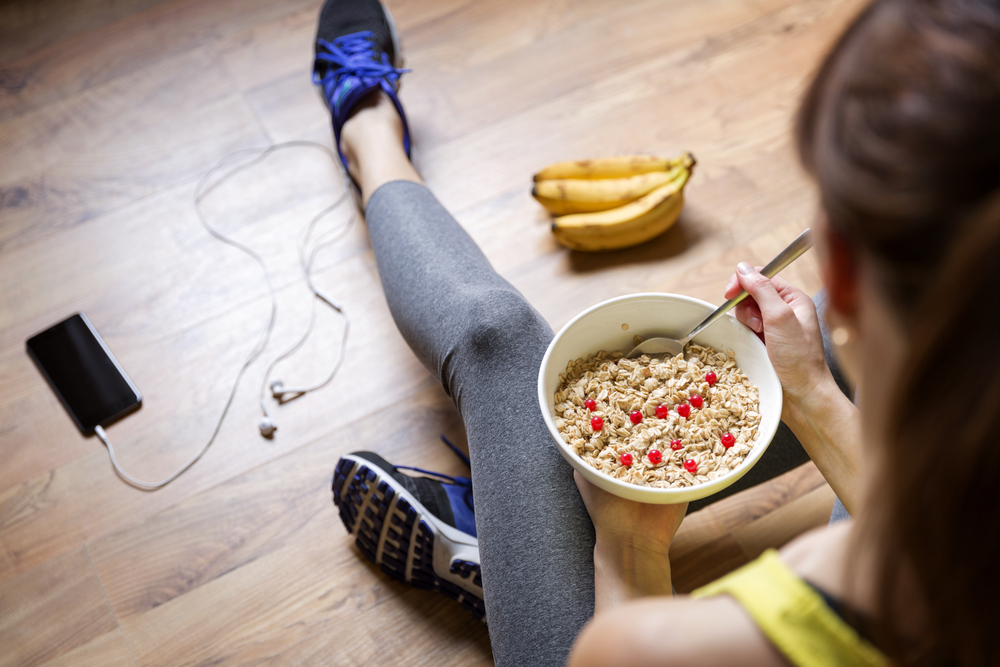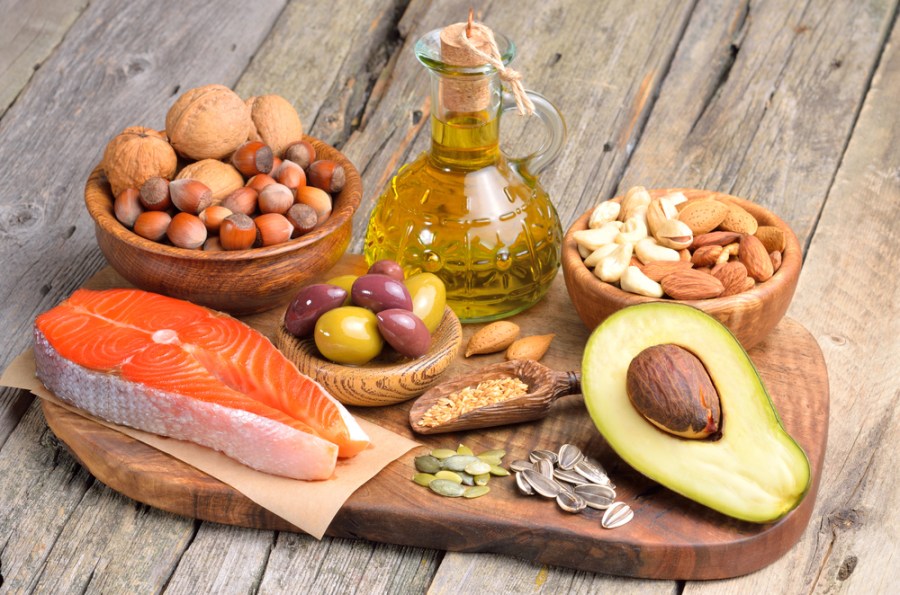A sensible training plan that allows for rest and which doesn’t overuse muscle groups is key to minimising your injury risk, but your diet also plays an important role. So, what should you eat to stay off the bench? Here are eight food-related ways to bolster against injury.
Get enough calories
If you’re exercising to lose weight, you may be restricting your calorie intake, but overdoing it can cause problems. You need to fuel your body properly to ensure you can recover adequately after a workout.
Eating enough calories to meet your fitness needs is rule number one in preventing injury. ‘Instead of trying to get super lean, aim to achieve a healthy weight and body composition that allows you to perform well without compromising your health,” is the sage advice offered by Anita Bean, registered nutritionist and author of The Complete Guide to Sports Nutrition and Runner’s Cookbook. While exercise can be a key tool in shedding some pounds, Bean says that creating a daily deficit of more than 300 calorie risks under-fuelling, fatigue and muscle loss in athletes.

Don’t skimp on fat
In a 2008 study in the Journal of the International Society of Sports Nutrition, low fat intake was the strongest dietary predictor of future injuries in female runners averaging 20 miles a week. Women with the lowest injury risk obtained roughly 30 per cent of their daily calories from fat – in line with current recommendations. ‘Aim to eat some nuts, seeds, avocadoes, olive or vegetable oils daily, and oily fish 1-2 times a week,’ registered dietitian and pilates instructor Priya Tew recommends. Healthy fats, particularly omega-3s reduce inflammation; fat in the diet also helps you absorb fat-soluble vitamins.
Take vitamin D
A 2013 study in the Journal of Science and Medicine in Sport reported that ballet dancers experienced more injuries in winter when their vitamin D level measured low. ‘To avoid bone and muscle injuries follow the UK government recommendations to take a 10-microgram daily supplement, especially during winter,’ says Tew. ‘Try to eat some good food sources, such as salmon or eggs, as well.’
Keep up the calcium
Ensuring you get enough calcium will also help avoid the low energy density that can lead to bone injuries and shin splints says Tew. You can get the daily recommended 800 milligrams more easily by eating a couple of servings of dairy or calcium-fortified plant equivalent. Other good sources of calcium include almonds, kale, spinach and watercress, and canned sardines.
Eat more plant-based meals
Anecdotally, plant-based eating, including a variety of plant proteins, seems to help some athletes with recovery, energy and reduced injury rate. ‘The helpful ingredients here are probably polyphenols and antioxidants – plant chemicals that may help reduce the oxidative stress associated with prolonged exercise, and modulate immune function and inflammation,’ says Anita Bean. Plant fibre brings similar benefits by creating a healthy gut microbiome. There’s no need to go vegan unless you want to but including more plant-based meals is definitely a good move.
Consider cherry juice
Polyphenol-rich Montmorency tart cherry concentrate (e.g., Cherry Active, £24.99 for 946ml, dolphin fitness.co.uk) may be worth a try if you’re training intensely and suffering from post-exercise soreness, says Bean. 2014 research by University of Northumbria researchers found that cyclists who consumed 2 x 30ml shots of concentrated Montmorency cherry juice daily had less muscle damage and inflammation following high-intensity cycling.







